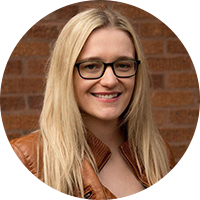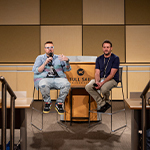Full Sail Stories
Published Mar 25, 2021
COVID Response: Film On-Campus Experiences
Film students are learning and creating with safe on-campus labs and film shoots.
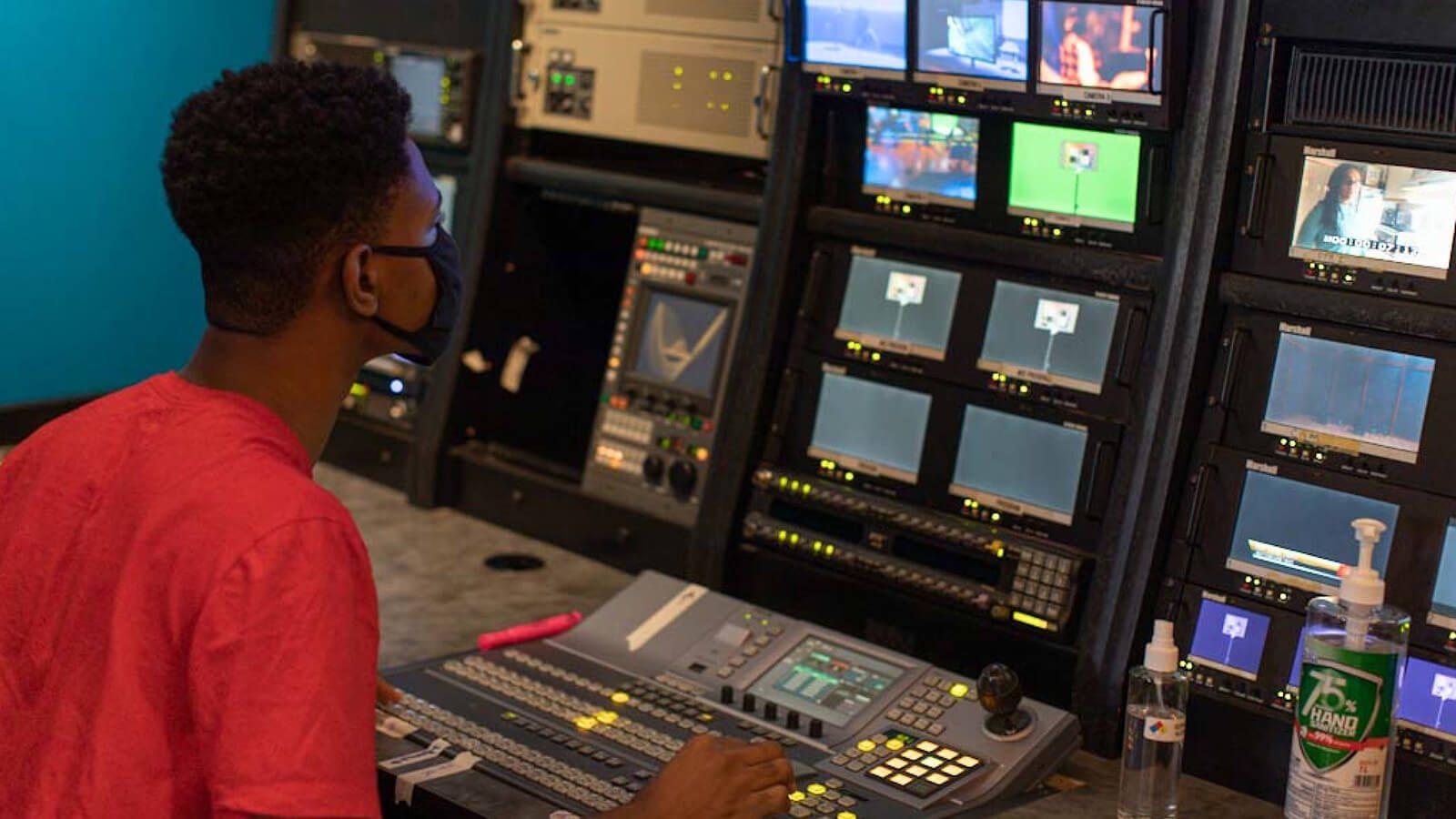
This information may be outdated. Visit go.fullsail.edu/coronavirus for Full Sail's current COVID-19 policies and responses.
Full Sail’s Film program helps students create stellar projects for their professional portfolios in a real-world environment. The COVID-19 pandemic presented new challenges for Film classes, but Full Sail is staying true to the school’s pre-COVID campus experience: Students are enjoying the same hands-on learning, just on a smaller scale.
Production Labs
Film students have the option of weekly on-campus lab sessions, where they are still learning how to use dollies, jibs, green screens, lighting equipment, and more in fully sanitized classrooms. They’re also able to take advantage of additional real-world experiences that flesh out other aspects of the industry.
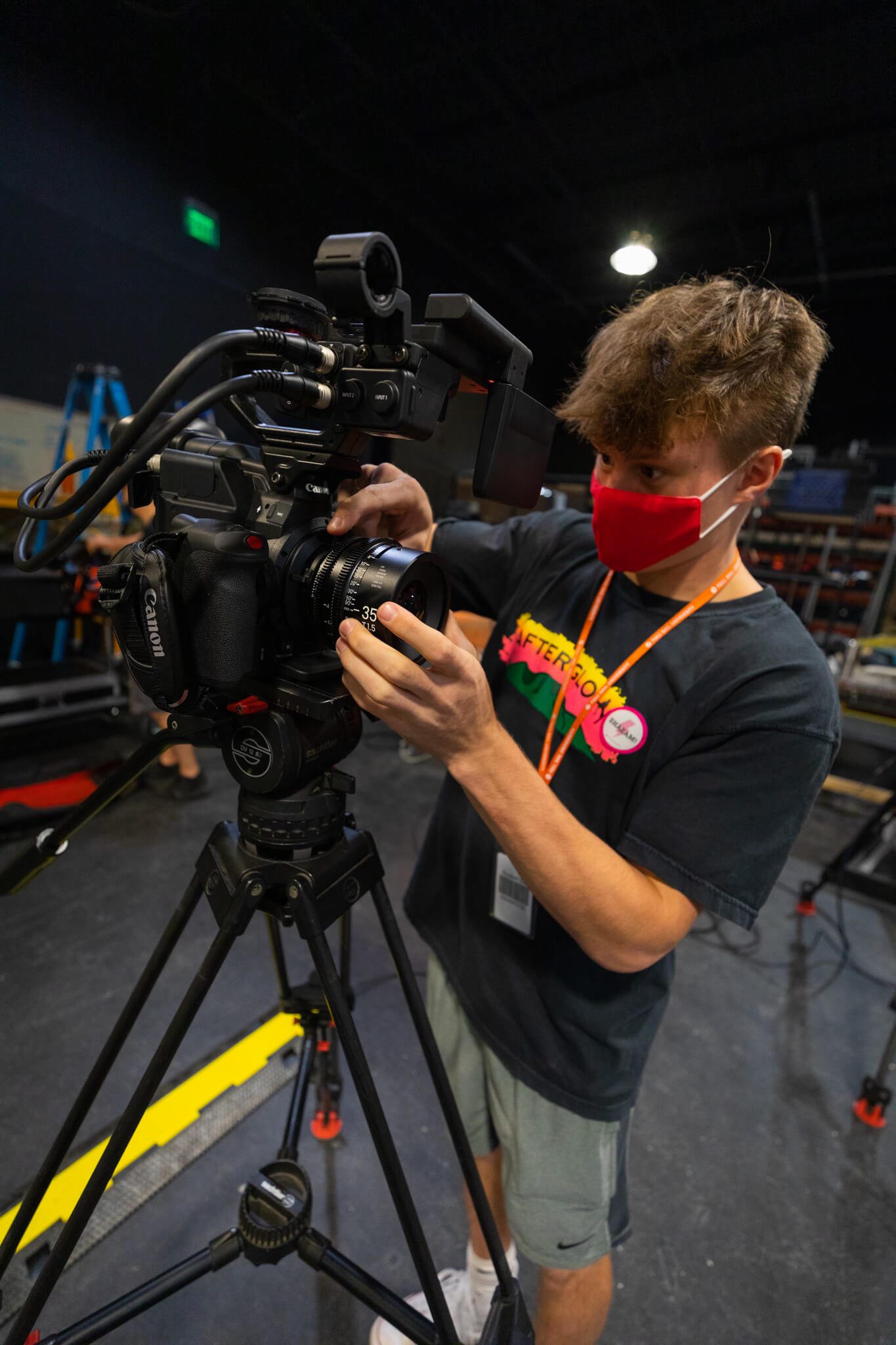
Film students are safely learning how to set up and use equipment on campus.
“Students have been enjoying open time in our editing rooms, film screenings, makeup application techniques… as well as learning set safety, protocols, construction, and design,” says Film Program Director Jeff Planck. “The priority is to provide a safe learning environment for our students and staff while we continue to expand these offerings.”
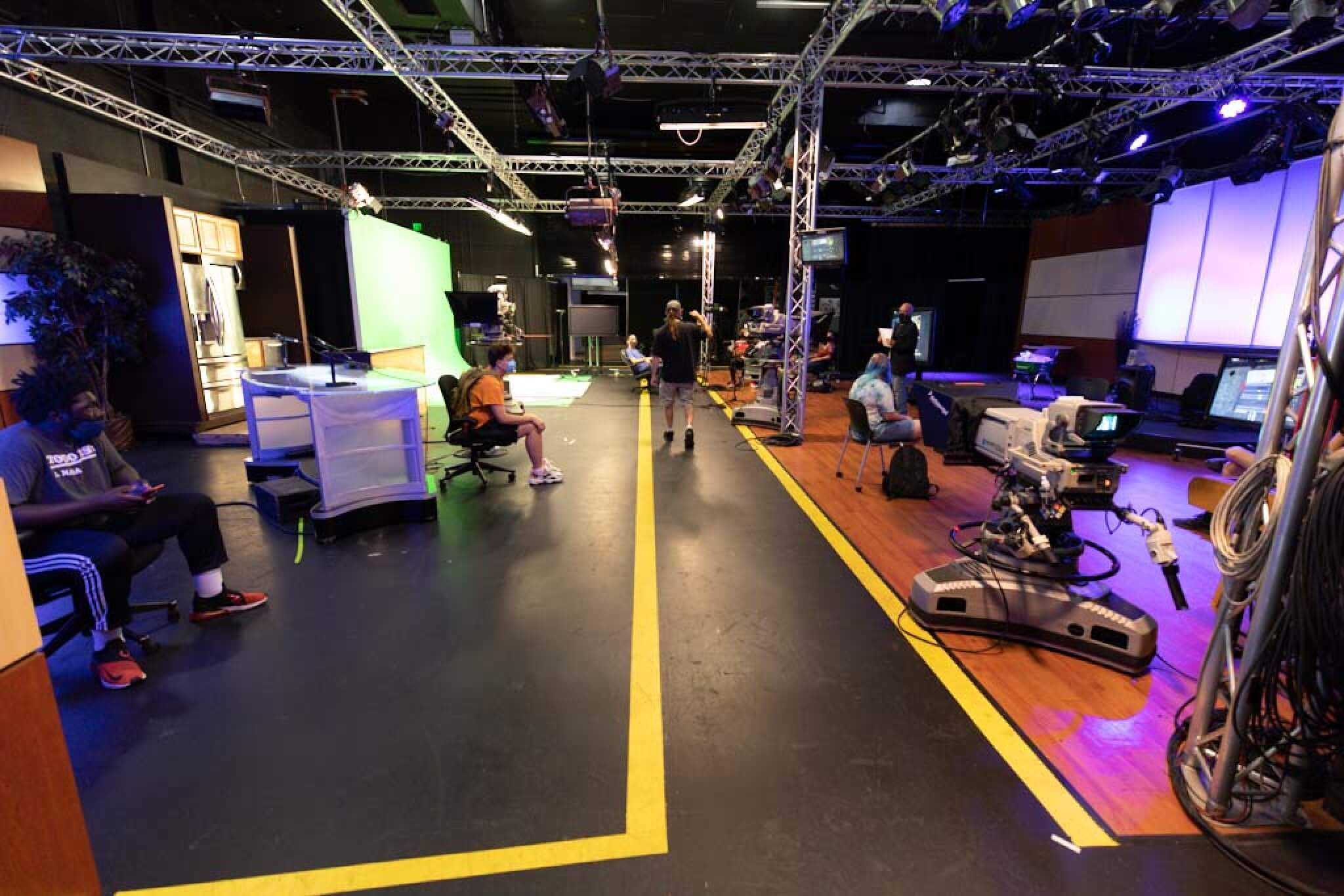
Socially distanced students learn how to combine camera feeds in the Video Switcher Lab.
Shooting
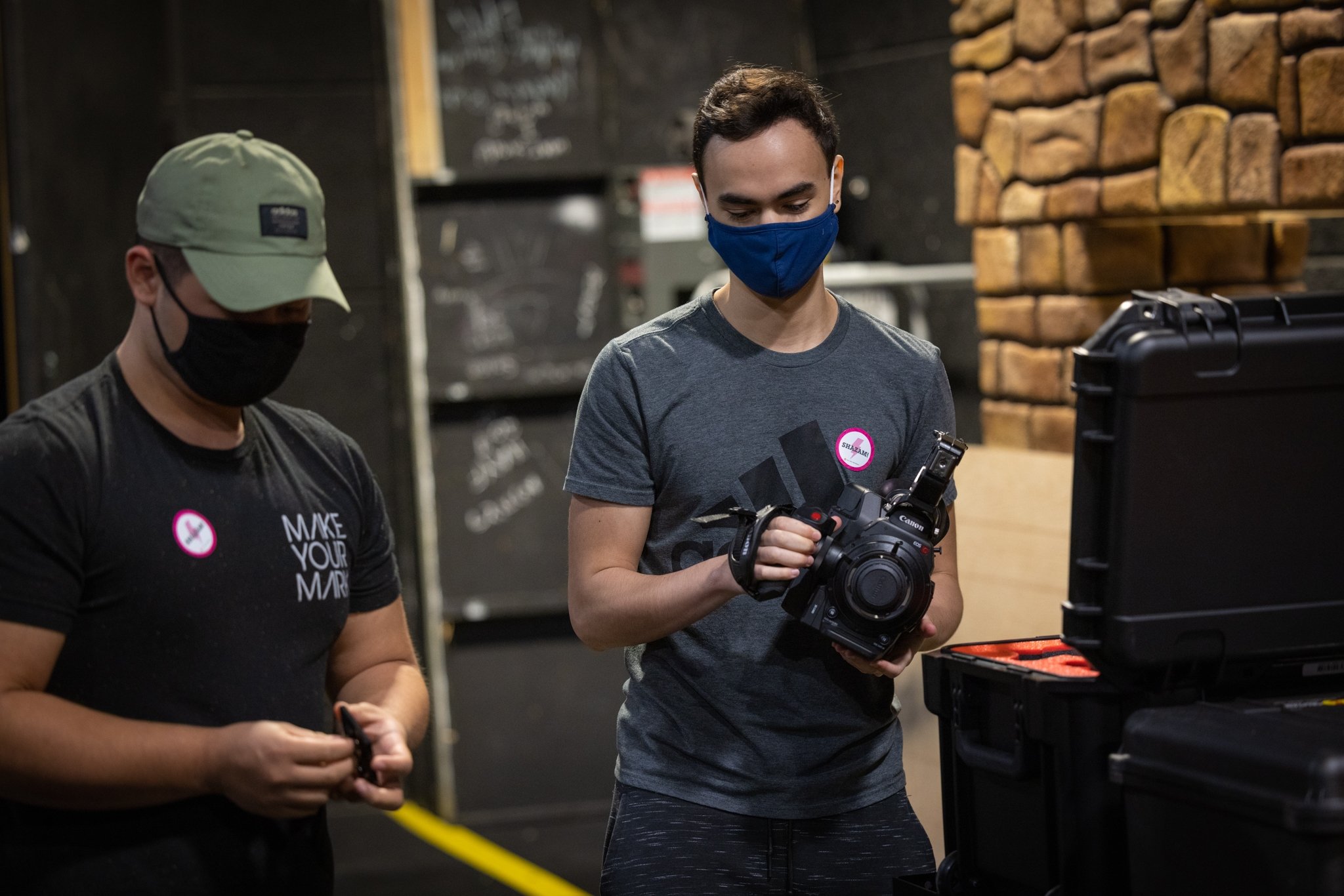
Students wear masks and use sanitized equipment for on-campus shoots.
Many Hollywood sets are back in action, and Full Sail is keeping pace with the industry with on-campus productions. Students are currently filming everything from smaller individual projects and portfolio pieces to group scene studies, documentaries, and modestly-sized productions. Students work on indoor soundstages with social distancing guidelines and masks; they follow those same protocols in Full Sail’s outdoor spaces like the Backlot.
“We keep the crews very small, the actors very minimal. They always have to wear their mask unless they’re on camera, and we try to shoot singles,” says TJ Doctor, a Film program Department Chair and the Course Director for Advanced Production I.
Technology
The Film department is using technology in creative ways to keep students safe and engaged. Multi-camera Zoom setups help campus students see small details at a distance, while students at home can shift between watching an instructor speak, checking out the gear they’re demonstrating, and other options in seconds. Full Sail has also purchased additional wireless equipment to limit the number of Film students in a given room at one time.
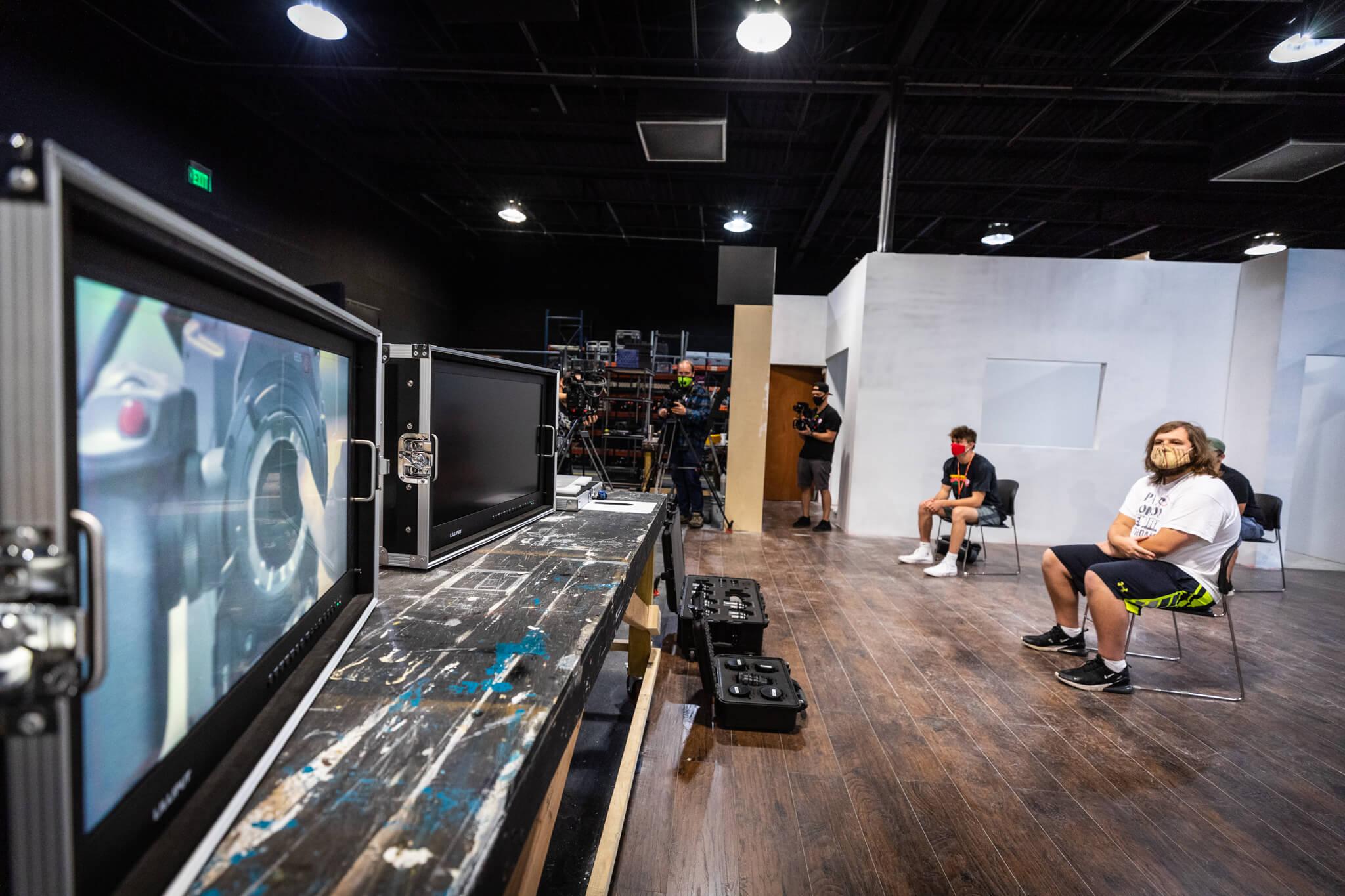
Multi-camera Zoom setups give students up-close views of equipment from a distance.
The pandemic hasn’t slowed down Full Sail’s commitment to having the latest industry-standard gear, either.
“In the past year we have added phone and DSLR gimbals and tripods and light kits in support of students shooting off campus, more LED lighting from ARRI, Lightpanels, and KinoFlo, and several courses are sporting new model Canon cameras. Our Broadcast stage has also seen some upgrades to their lighting, audio, and teleprompting systems. We will also be looking forward to the arrival of a new ARRI camera this spring or early summer,” says Jeff Planck.
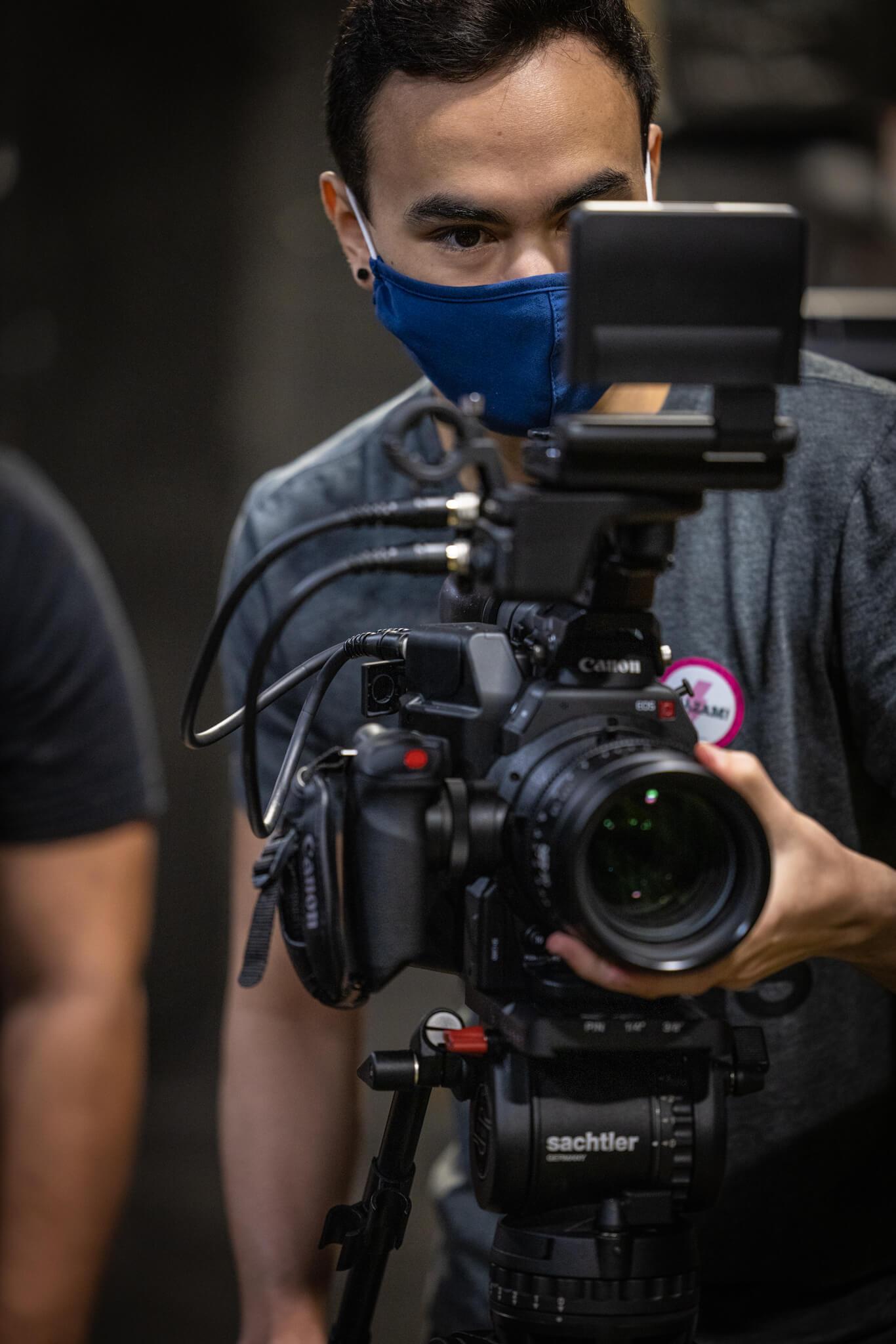
A student in Full Sail’s Camera Lab focuses an industry-standard Canon camera.
